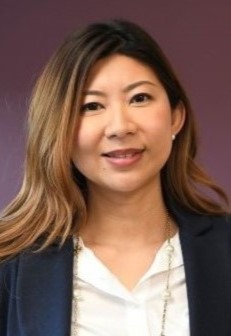
Carol Zhong was appointed to a standards committee after responding to a Law Society advertisement looking for lawyers to volunteer.
A partner at Auckland firm Duthie Whyte, Carol says it was a good opportunity to turn her hand to an area of work she was interested in but hadn’t done before.
“I wanted to try and do what I could to contribute,” she says.
Carol calls on her extensive estate and property experience to assist with her work on complaint files. Her Chinese language ability is particularly helpful when a complaint involves a Chinese speaking lawyer.
“Having language ability can help the committee to understand the context about why a lawyer may have done certain things.”
As a Chinese speaking lawyer her expertise is called on frequently.
She admits it can be hard to keep up with the amount of work it requires, but it is not a commitment she shies away from.
“It is helpful to the profession and clients to have someone who is bilingual and can contribute and explain the context to other committee members,” she says.
Miscommunication
Many of the complaints Carol has been involved in so far have been about overcharging of fees and issues of communication.
Carol says communication can be carried out in diverse ways with some Chinese clients.
“WeChat is a forum that is used by Chinese lawyers and clients as a way to give and take instructions as well as to send and record communications,” she says. “It’s not the traditional way that we would expect.”
It is this that can lead to misunderstandings and record-keeping issues, Carol explains. “If a complaint is made, it can be difficult to find instructions and communications if they have taken place on WeChat.”
Yet it is a channel that is becoming increasingly relevant.
“Chinese clients want to communicate on this forum that suits them,” Carol says. And so, lawyers need to adapt their record keeping ensuring that they are complying with their regulatory requirements.
Builds public confidence
Carol describes the role and responsibilities of the Standards Committees as important work.
“It helps to build the general public’s confidence in our profession. The committees help the public in holding lawyers to account when they break the rules of the Lawyers and Conveyancers Act.”
Carol has been impressed by the calibre of her committee colleagues, and while describing herself as a “rookie”, she has endeavoured to be as helpful as she can.
Being on the committee has also been good for her own learning.
“I have learnt more than I give,” she says. “I know more about what gives rise to a complaint, what the common pitfalls are and how to avoid them.”
She thoroughly enjoys the work and talking to fellow practitioners.
Carol also values the lay members who she says contribute significantly and provide a different perspective. “They are instrumental in how decisions are made.”
